If Christians Want to Fulfill the Great Commission, They Must Be Able to Answer This Basic Question
Our post-Christian culture is at war with reality.
If this were not the case, there would be no market for documentaries asking such simple questions of ontology, like Matt Walsh’s 2022 film “What Is a Woman?”
Prescient as always, G.K. Chesterton saw an age like ours coming when he warned that soon “Fires will be kindled to testify that two and two make four. Swords will be drawn to prove that leaves are green in summer.”
What is a baby? What is a marriage? What is a woman? These questions have only one right answer. Yet offering that answer indeed causes many to draw their swords in a world violently rebelling against the fabric of nature itself.
But, as the Roman poet Horace once remarked, “You may drive out Nature with a pitchfork, yet she will always hasten back.” 2025 may be the year that nature (or “creation order” if you prefer) hastens back with a vengeance.
As such, many have begun to ask another elementary question: What is a nation?
Google Trends data shows that global interest in this question has steadily risen since 2004. Starting with a relative interest score below 25 (on a scale from 0 to 100, where 100 represents peak search volume), the question began gaining more attention, particularly after 2014. By 2020, the interest score frequently hovered around 75 or higher, with occasional spikes hitting 100 in recent years.
The recent debate over legal immigration, H-1B visas, and the “work ethic and culture” of working-class Americans only underscore the widespread confusion on the question of “What is a nation?”
This turn in the conversation is of particular interest to me, as someone conversant with evangelical missiology. Nations, after all, are the object of the missionary imperative in Matthew 28:19. The disciples of Christ aren’t commanded to “Go, therefore, and disciple an idea”—they are told to disciple nations.
In 2020, I hosted a virtual roundtable of missionary thought leaders to debate this very question—sparked by dueling articles that had made some waves. But five years ago, we were ignorant of any political undercurrents in what seemed like an intramural debate among cross-cultural ministry strategists. The past is a foreign country.
Today, by contrast, this question is no longer isolated to the obscure missiological backwaters of the internet. It has sprung into our political discourse in a newer, more simple form: Who are we?
Who are we as Americans? Who are “we the people” that Christians are called to evangelize and disciple in America? Who are the other nations we are trying to reach in obedience to Christ to fulfill the Great Commission?
I would argue that there are, essentially, two primary ways of answering this question. First, nations like ours are mere “credal polities” or economic zones erected atop abstract, a priori propositions. Second, nations are, as we have traditionally understood them to be, peoples.
The former option—that of the notional or propositional nation—has reached shibboleth status in media and education and among ruling elites, including our current president. America, we are told, is simply an idea—one of egalitarianism, multiculturalism, and some version of individual autonomy.
The propositional nation model appeals to our modern sensibilities. It smells of the postwar air we have breathed our whole lives.
The only problem is that it is utterly meaningless.
Ideas alone cannot repent, declare independence, write constitutions, expand Westward, put men on the moon, abolish the slave trade, and pass on a certain way of life to its progeny. People with ideas do such things.
This leaves only the second option—the answer which has been heretofore uncontroversial among most missiologists and exegetes—namely, that of peoples. A nation, or ethnos in the biblical sense, is necessarily a constellation of ethnicity, language, culture, religion, heritage, geography, and solidarity—see, for instance, the repetition of “lands…language…clans” in Genesis 10 (the “Table of Nations”)—and is not strictly coterminous with one of these factors alone. The Joshua Project, an organization dedicated to highlighting nations who still need the gospel, explains that “A people group is defined primarily by language, with the possibility of sub-divisions based on dialect or cultural variations, forming an ethno-linguistic list of peoples.”
In his 2011 book, Suicide of a Superpower: Will America Survive to 2025?, the great politician and political philosopher Patrick Buchanan defined a nation with a similar emphasis on the people:
“For what is a nation? Is it not a people of a common ancestry, culture, and language who worship the same God, revere the same heroes, cherish the same history, celebrate the same holidays, share the same music, poetry, art, literature, held together, in Lincoln’s words, by ‘bonds of affection.… mystic chords of memory, stretching from every battle-field, and patriot grave, to every living heart and hearth-stone?'”
You might not agree with every jot and tittle of Buchanan’s definition, but it’s a good starting point. It’s certainly far closer to the biblical understanding of nations as distinct people groups than the propositional nation advanced by “end of history” liberalism.
Or, to borrow from the famous Justice Stewart test, you know a nation when you see one. At least, we used to.
The modern concept of nation-states, shaped significantly by the Treaty of Westphalia in 1648, refers to political entities defined by territorial borders, centralized governance, and sovereignty. As mentioned, the biblical concept of “nations” (ethne) primarily refers to peoples—communities distinguished by shared language, culture, history, and identity rather than fixed geography, though geography and borders were certainly a piece of the biblical understanding of a nation. Some missiologists, like Vishal Mangalwadi, have argued that factors such as borders and governance can contribute to a people group’s self-identity and help determine whether they should be counted as a distinct nation. In an interview, Mangalwadi noted that while the Great Commission emphasizes discipling peoples, the reality of geopolitical boundaries can shape how those peoples live, interact, and organize themselves.
When it comes to recognizing nations as more than mere abstractions, ideas, or arbitrary lines on a map, but rather as a collection of a particular people in a particular place, the true challenge we face is one of connotation, not denotation. In the twentieth century, we saw certain imperialistic impulses used to justify horrendous evil. As such, phrases like “blood and soil” came, in the wake of the Second World War, to connote a violent totalitarianism. The collective response was to defang these old, strong “gods” of lineage and land and replace them with the new, weaker gods of individualism, openness, and inclusivity.
Rusty Reno has treated the pitfalls of this postwar liberal consensus at length in his Return of the Strong Gods, and to retrace his arguments here would be superfluous. But what the consensus overlooked was that collectivism, of one sort or another, is inescapable; there are no true autonomous individuals, and politics cannot be separated from groups.
This is why the woke movement of the late 2010s and early 2020s gained as much steam as it did; invented identities, ranging from the simplistic race-as-skin-color approach to the infinite permutations of sexual preference labels, filled the void left by modernity’s aversion to group solidarity.
Recent days have shown the tremendous difficulty faced by anyone contending for the traditional definition of the nation—such as Vice President-elect J.D. Vance. When Vance proclaimed that “America is not just an idea. It is a group of people with a shared history and a common future. It is, in short, a nation,” James Lindsay called him a fascist.
Holding to a historical and, in many respects, biblical understanding of nations—rooted in shared identity and community—is now fascist? Who knew?
The trials of the twentieth century have cast a spell not easily broken—a spell of such strength that a further question is warranted: Does something deeper, perhaps even spiritual, animate the strong opposition we witness today to nationhood as traditionally understood?
I believe so, for this simple reason already cited above: Nations are the object of the Great Commission. Jesus commands us to disciple the nations by preaching the gospel to them, baptizing those who believe, planting churches, and teaching them to obey everything Christ commanded.
This is precisely what Satan seeks to hinder in this age. While he cannot stop the advance of the gospel, he can distort our thinking and set obstacles in our way.
The nations described in Scripture—peoples, tribes, languages, and tongues—can be reached with the gospel, discipled, baptized, and transformed by Christ. They consist of real people with real cultures and histories, not abstract ideas or propositions.
But ideas themselves cannot be discipled; they do the discipling. When we attempt to disciple abstract notions instead of real, tangible nations, we inevitably lose clarity. Ideas absorb other ideas, distorting the truth—much like an ever-expanding void consuming everything around it.
The result is syncretism. It is like introducing Christianity into an animistic culture without careful discipleship. The witch doctor does not stop being a shaman; he just adds a Bible verse or two and upgrades his charms for a private jet. Without grounding in Scripture, the gospel becomes fused with whatever worldview it encounters, and the truth is obscured.
Only by recovering a natural and biblical understanding of nationhood—rooted in both the way of God’s world and the principles of God’s Word—can we faithfully fulfill our calling to disciple the nations.
And only by rightly answering the question “What is a nation?”—grounded in a biblical understanding of peoples—can we contend for the well-being of those entrusted to us by God and the land we collectively call home: the United States of America.
-

Alex Kocman is the Director of Communications and Engagement for ABWE and serves as an elder and as worship director at Faith Bible Fellowship Church of York, Pa. He serves as general editor for Message Magazine and co-hosts The Missions Podcast. After earning his M.A. in Communication and B.S. in Biblical Studies, he served as an online apologetics instructor with Liberty University and a youth pastor in Pennsylvania, where he now resides with his wife and three children. You can follow him on X at @ajkocman or by visiting alexkocman.com.

